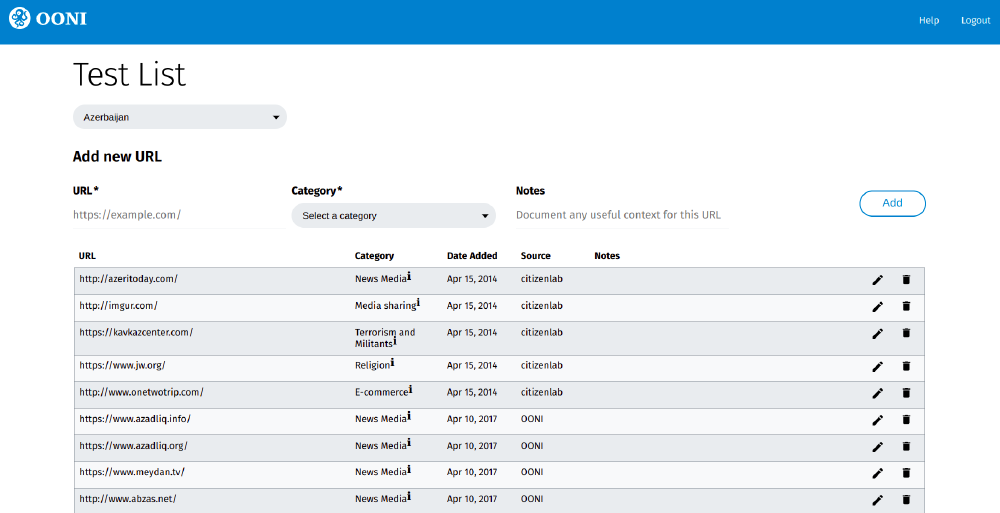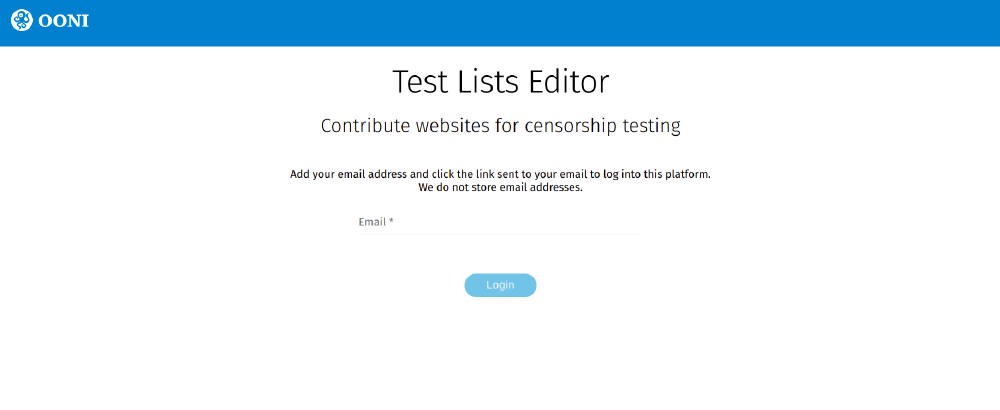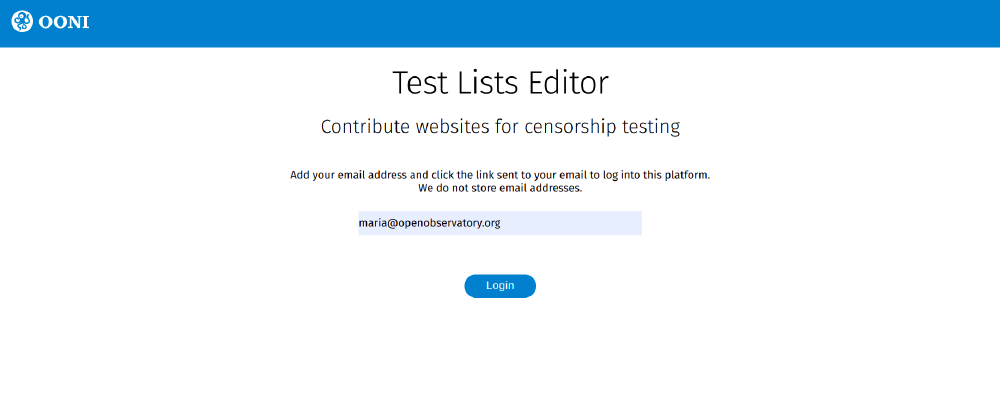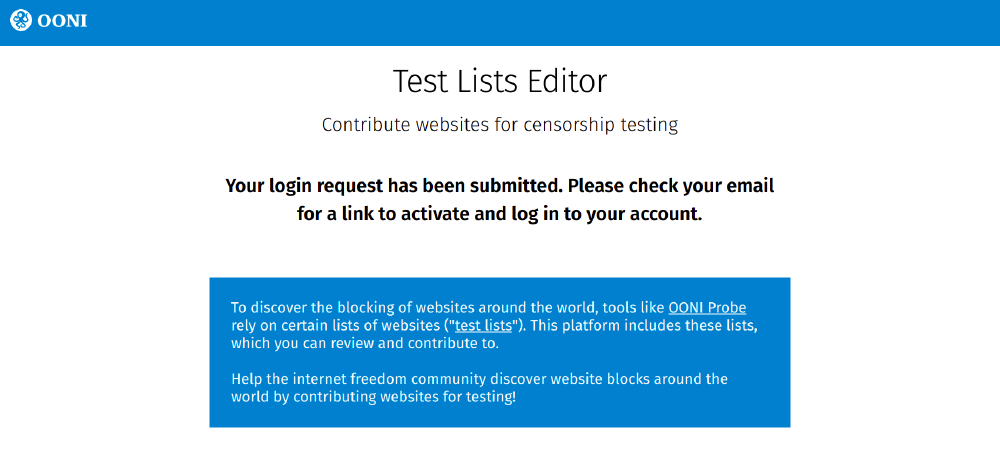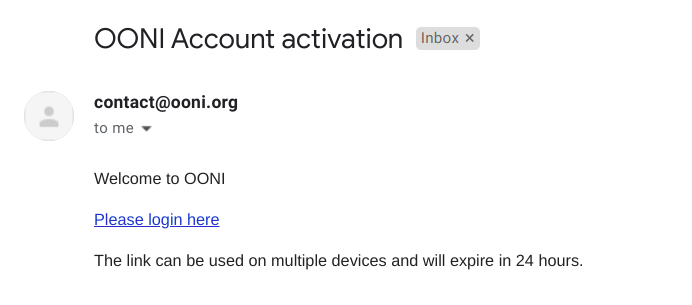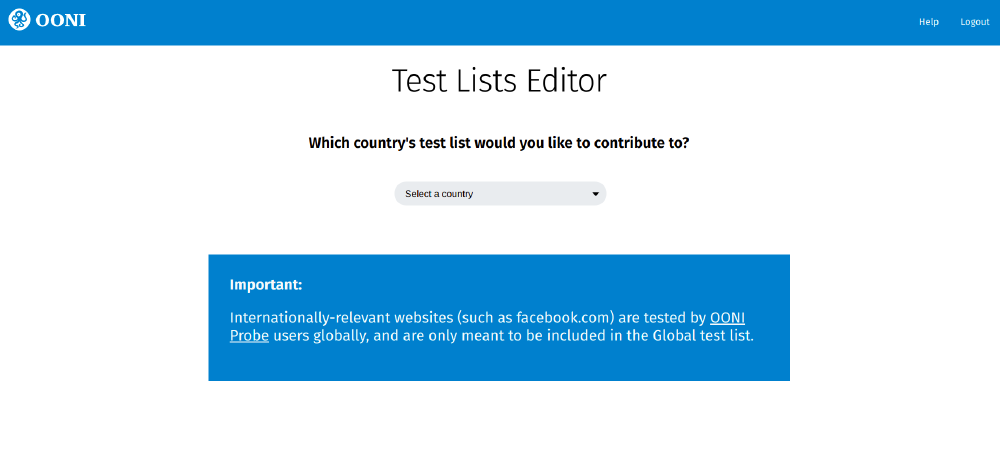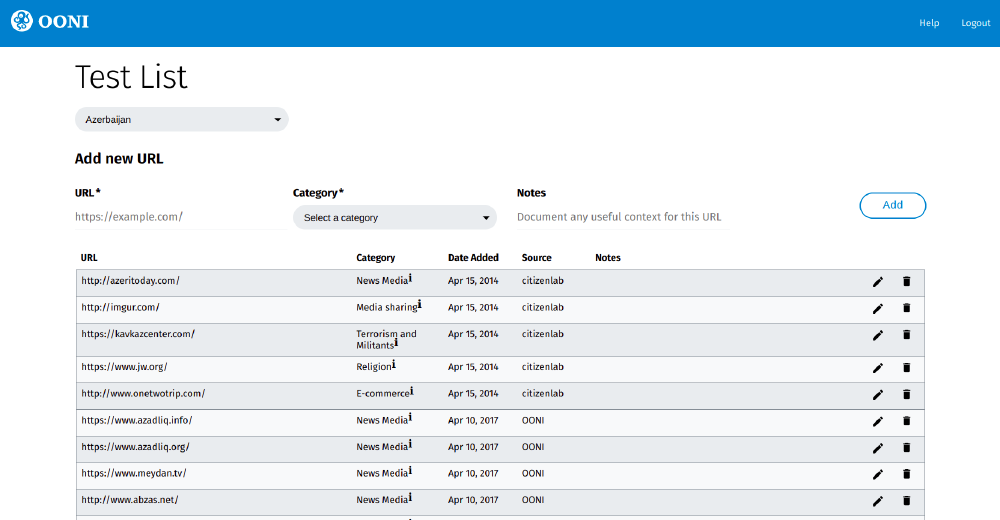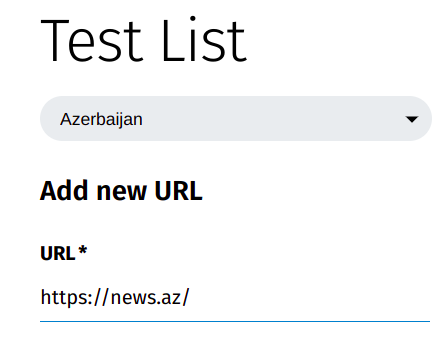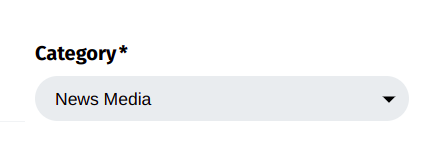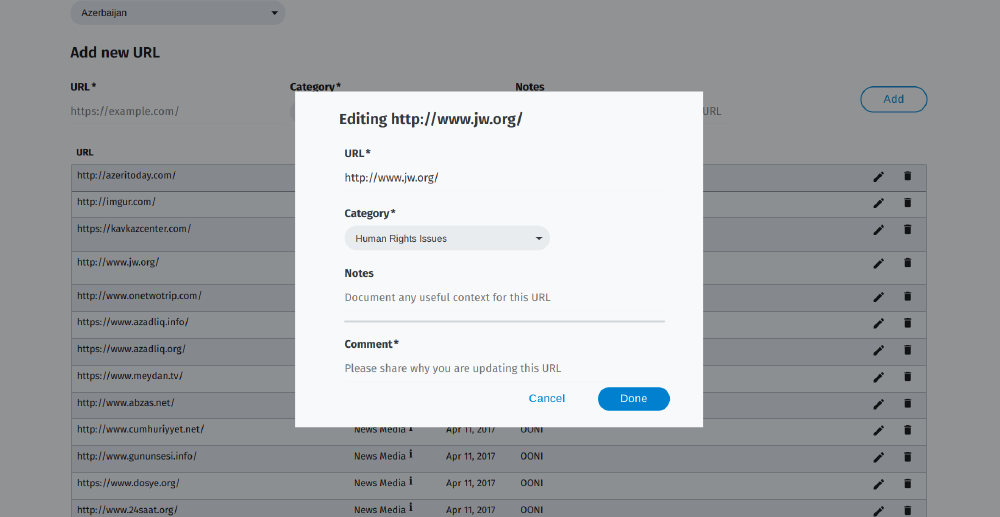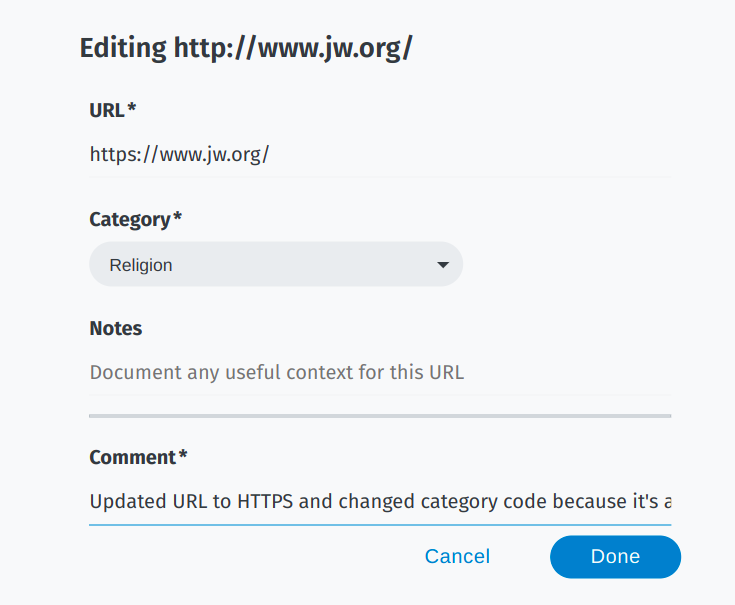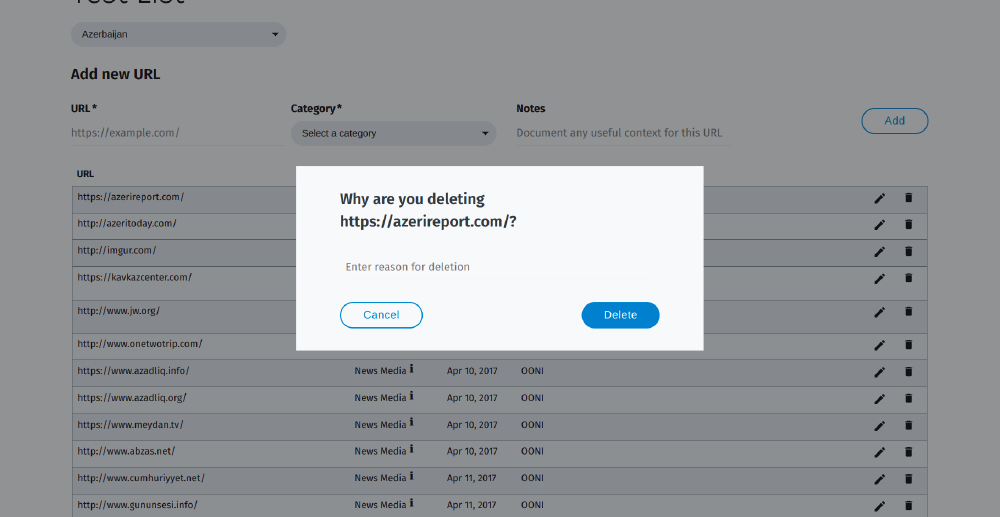New Test Lists Editor: Contribute websites for censorship testing
Today the Open Observatory of Network Interference (OONI) team is excited to announce the public launch of our new Test Lists Editor!
This platform enables the public to review and contribute to the lists of websites (“test lists”) that are tested for censorship by OONI Probe users around the world.
Help the internet freedom community discover website blocks around the world by contributing through the new Test Lists Editor!
About test lists
What are test lists?
Test lists are lists of websites that are tested for censorship by OONI Probe and tools developed by other projects, such as Censored Planet.
Since 2014, these lists have been publicly hosted on GitHub by the Citizen Lab with the goal of encouraging community review and contributions. As a result, these lists have been dynamically updated on an ongoing basis over the years.
Test lists include a wide range of different types of websites based on 30 standardized categories (such as news media, political criticism, and human rights content). Since these lists are tested by OONI Probe users on local networks (who may experience bandwidth constraints), they usually only include up to 1,000 URLs.
Unlike a blocklist (which is a list of prohibited websites – all of which are usually blocked – and may include thousands of URLs), test lists are not meant to be limited to blocked websites. Rather, they serve the purpose of monitoring when policies change - what’s most likely to be blocked or unblocked.
While test lists usually include some websites that are known to be blocked, many sites are not censored locally when they are added to test lists. With test lists, we aim to discover website censorship (by identifying the blocking of sites that were previously accessible), not only confirm it.
Types of test lists
There are 2 categories of test lists:
Global test list: Includes a wide range of internationally relevant websites (e.g. facebook.com), most of which are in English. This list is tested by all OONI Probe users globally.
Country-specific test lists: Each list includes websites that are only relevant to a specific country (e.g. Brazilian media websites), many of which are in local languages. OONI Probe users test the list of the country that they are running tests from (e.g. OONI Probe users in Brazil test the Brazilian test list).
Why contribute to test lists?
Discovering cases of website blocking (such as the current blocking of bbc.com in Russia) really depends on which websites you test.
For example, if a specific human rights website is blocked in a country, but it’s not included in a relevant test list, it won’t be tested by tools like OONI Probe, which means that relevant test results will not be openly published. Website censorship findings are therefore only as interesting as the websites that are tested!
You can play an important role in ensuring that your country’s test list includes websites that are worth monitoring for censorship.
Updating test lists requires local knowledge, an understanding of which websites are relevant, commonly accessed, and more likely to be blocked in light of a country’s social and political environment.
Websites constantly change (e.g. domains expire, domains change, new websites are created), and what is sensitive to blocking changes over time. It is therefore important that test lists are reviewed and updated regularly.
The OONI Probe results of website testing are automatically published as open data in real-time.
Why a web platform to contribute to test lists?
Community members with a social science background (such as political scientists, researchers, journalists, and human rights advocates) are often best-positioned to update test lists. A deep understanding of a country’s social and political environment is often a requirement for identifying the types of websites that risk being censored (as many website blocks are often politically-motivated, reflect social and cultural norms, and impact marginalized groups).
However, test lists have been hosted on GitHub, which is a platform mainly used by developers. This has presented a barrier in contributing to test lists.
To enable our broader community to more easily review and contribute to test lists, we have created a new Test Lists Editor. This platform includes all of the Citizen Lab test lists, and users can add URLs, edit existing entries, and propose the removal of entries through a web interface (without using GitHub). User contributions (submitted through the Test Lists Editor) automatically end up as pull requests on GitHub, which are peer-reviewed by the Citizen Lab, OONI, Censored Planet, and Netalitica. Once these pull requests are reviewed and merged, the contributions are integrated into test lists and (automatically) prioritized for OONI Probe testing.
Using the Test Lists Editor
You can use the new Test Lists Editor through the following steps.
Step 1. Access https://test-lists.ooni.org/
Step 2. Add your email address in the Email slot (we do not store email addresses).
Step 3. Click Login. This will send a link to your email address.
Step 4. Click the link (“Please login here”) sent to your email to log into the Test Lists Editor.
Step 5. Once logged into the platform, select a test list through the drop-down menu.
In this example, we have selected the test list for Azerbaijan.
As part of reviewing a test list, you can:
Add websites;
Edit existing entries (update the URL, update the category, add relevant context in the Notes);
Delete existing entries (for example, if the domain has expired or is otherwise no longer relevant).
Adding websites
To add a website to a test list:
Step 1. Add the URL (e.g. https://news.az/) to the URL slot.
Step 2. Select a category (e.g. News Media) through the Category
drop-down menu to categorize the URL (e.g. https://news.az/) you
have added.
Optional. If you would like to add relevant context pertaining to the added URL (which can help other researchers), please add it under Notes.
Step 3. Click Add.
Your addition will be saved, and you can continue adding many more websites.
Step 4. When you are done making changes, click Submit to propose your changes.
Editing test list entries
You can edit existing test list entries to:
Update the URL. If a website supports HTTPS, you can update it to HTTPS. Or if a domain has changed, you can replace the URL with the new URL.
Update the category. If you think a website is wrongly categorized, you can change the category.
Add notes. If you would like to share relevant contextual information pertaining to a URL, please add it in the Notes section.
To edit existing test list entries:
Step 1. Click the edit icon in the row of the entry.
This will make the editing screen appear.
Step 2. Edit the entry by updating the URL, updating the category, or adding useful context in the Notes.
Step 3. To enable third-party review of your changes, please briefly explain why you are making these changes in the Comment section.
Step 4. Click Done when you’ve completed your edits.
Your proposed edits (along with any other changes) will appear at the start of the Test Lists Editor.
Step 5. When you are done making changes, click Submit to propose your changes.
Deleting test list entries
You can propose the deletion of a test list entry if a website is no longer available (e.g expired domain), or if the website is not relevant to the specific country.
To delete test list entries:
Step 1. Click the delete icon in the row of the entry.
This will make the delete screen appear.
Step 2. Please explain why you would like to propose the deletion of a URL (e.g. “Website no longer exists”).
Step 3. Click Delete to propose the deletion of that URL.
Your proposed deletion (along with any other changes) will appear at the start of the Test Lists Editor.
Step 4. When you are done making changes, click Submit to propose your changes.
Acknowledgements
We thank the Citizen Lab for their leadership in creating the test list project and for publicly hosting the test lists on GitHub (since 2014), enabling important community contributions over the last 8 years.
Special thanks go to Netalitica researchers for their excellent work on extensive updates and improvements to numerous test lists over the last years! Through their network of country experts and researchers, they have significantly enhanced the quality of website testing, enabling the discovery of multiple cases of website censorship around the world.
Warm thanks go to our partners and all other community members who have contributed to the test lists over the years. We also thank community members (such as Coding Rights and The Bachchao Project) who facilitated test list workshops, encouraging contributions from their local communities.
Finally, we thank all community members who shared feedback for the development and improvement of our new Test Lists Editor. We hope that this platform will encourage even more contributions in the years to come!
